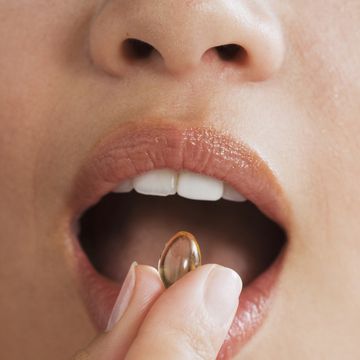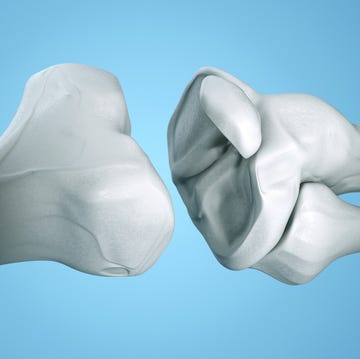8 Medications That Can Cause Weight Gain, According to Doctors
Plus, the exact steps you can take if you notice the pounds piling on.

This article was medically reviewed by Rekha Kumar, M.D., a board-certified physician, assistant professor of medicine, and member of the Prevention Medical Review Board, on November 10, 2019.
When your doctor puts you on a prescription medication, reading the list of potential side effects can be daunting. While it may be tempting to ignore that fine print completely — after all, the benefits of being on the medicine will likely outweigh the possible negatives — experts agree it’s still important to know what you might face. A common one? Weight gain.
“There are certain medications that are known to cause weight gain, but that doesn’t mean that if you take one of them, gaining weight is inevitable,” says Prudence Hall, M.D., an integrative gynecologist at The Hall Center in Santa Monica, Calif. “If you know the medicine you’re on may cause you to pack on the pounds, you can take steps to prevent that from happening.”
Shilpi Agarwal, M.D., a board-certified family physician in Washington, DC, agrees. “My biggest recommendation is to make sure you get an accurate starting weight before you even fill the prescription, and once you start taking it, check your weight again in two weeks,” she says. “A lot of people gain weight without even realizing it, and if you don’t catch it until you’re six weeks in, that could mean you’re up 10 or more pounds.”
But even if you do start gaining weight, you should always talk to your doctor before you make any changes to your routine. “Medications should not be stopped, especially psychiatric medicines without supervision of the prescribing psychiatrist,” says Rekha Kumar, M.D., an assistant professor of medicine at Weill Cornell Medical College and member of the Prevention Medical Review Board.
“In many cases of medication-induced weight gain, it would be prudent to consult an American Board of Obesity Medicine certified physician to assist in weight management,” Dr. Kumar says. This might involve prescribing medicine to assist with weight loss that can counteract the weight gain potential of the offending (but necessary) drug.
Here, the most common medications that tend to cause weight gain — and the options you have to avoid the annoying side effect.
Watch Next


The 7 Best Wearable Breast Pumps

30 Black-Owned Makeup Brands to Know and Love

Why You May Have Cramps After Your Period

Should I Take Prenatal Vitamins When Not Pregnant?















